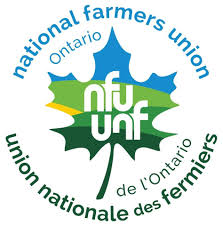Press Release
National Farmer’s Union
Saskatoon, — Across BC, the Prairies, and western Ontario, intense heat and lack of rain are withering crops, pastures, livestock feed, orchards, and vegetable fields and drying up water supplies. The results are devastating. More than three-quarters of Canadian farmland has been impacted by drought.
Arzeena Hamir and her husband farm in the Comox Valley on Vancouver Island, BC. Their farm grows 40 types of organic fruits and vegetables. Drought and heat have drained their water supplies and damaged their crops. Hamir describes the impacts: “We depend heavily on our water supply to grow our vegetables and fruit. The heat wave required us to double our irrigation, and yet we still lost a crop of salad greens and our early berries. The berries literally cooked on the plants and there was nothing we could do to stop it. As a farmer, that was the hardest part to handle: not being able to control what was happening in terms of the temperature and seeing so much food go to waste.”
Glenn Wright and his family farm near Delisle, Saskatchewan. They grow wheat and other cereals, canola, lentils, and forage crops for neighbours’ livestock. Wright describes the effects of drought and heat: “This year began with low soil-moisture reserves, but the problem was exacerbated by the extreme heat. We’ve had less than 50mm, or 2 inches, of rain since April 1st and the hot weather and drought have devastated our crops. Our forage yield is forty percent of normal, and a third of our oat crop withered and died in the record-breaking heat. And with everything so dry, I worry about grass fires or even crop fires roaring across the countryside.”
Neil Peacock and his family raise Pinzgauer cattle on their ranch near Tee Pee Creek, in the Peace River region of Alberta. Peacock describes his situation: “Livestock farmers as well as grain farmers are facing unprecedented financial hardships due to record temperatures and lack of rain. Pastures are burnt brown and hay fields are producing a fraction of their normal yields of cattle feed. On top of that, we now have a grasshopper infestation. Without pasture, feed, or, in some cases, water, farmers are being forced to sell livestock into markets paying rock-bottom prices. It’s a disaster.”
Huge and mounting losses for farmers mean that immediate federal and provincial support is urgently needed. The NFU is calling on western Premiers and the federal Minister to raise AgriStability compensation rates to 80 percent, trigger the AgriRecovery program (this may be in the works), and to take extraordinary steps to prevent a sell-off of cattle herds—measures including maximizing crop tonnage that can be salvaged as livestock forage. We also need programs for newer farmers and smaller farms—operations that may be inadequately protected by existing risk management programs.
Beyond these critical near-term measures, however, longer-term, structural, Canada-wide and international action is needed to reduce greenhouse gas emissions, hold temperature increases close current levels, and avoid making droughts like this years’ more frequent and intense in the future.
Glenn Wright commented: “We want rapid, continuing, long-term action to reduce fossil fuel use, GHG emissions, climate impacts, and the severity and frequency of future droughts. If we don’t act much faster to reduce GHG emissions in Canada and around the world, these kinds of punishing droughts will become more frequent and intense.”
Arzeena Hamir added: “The planet has warmed by just over one degree Celsius, and things are already very bad. Going to 1.5 degrees will make things worse. And if we don’t slash emissions, we’ll go far past 1.5 degrees of warming and hit 2 or 3 degrees, with catastrophic consequences for agriculture in Canada. We must respond rapidly to this drought, but equally important we must spur emission-reductions to lessen the frequency and severity of future ones.”
Neil Peacock concluded: “A neighbour told me: when you realize you’re digging yourself into a bad hole, stop digging. We need to stop producing the greenhouse gas emissions that will trigger ever more intense heat and drought in the future.”







![Kenopic/Smith Auction [Paid Ad]](https://whitewaternews.ca/wp-content/uploads/2018/10/advertising-100x75.jpeg)

